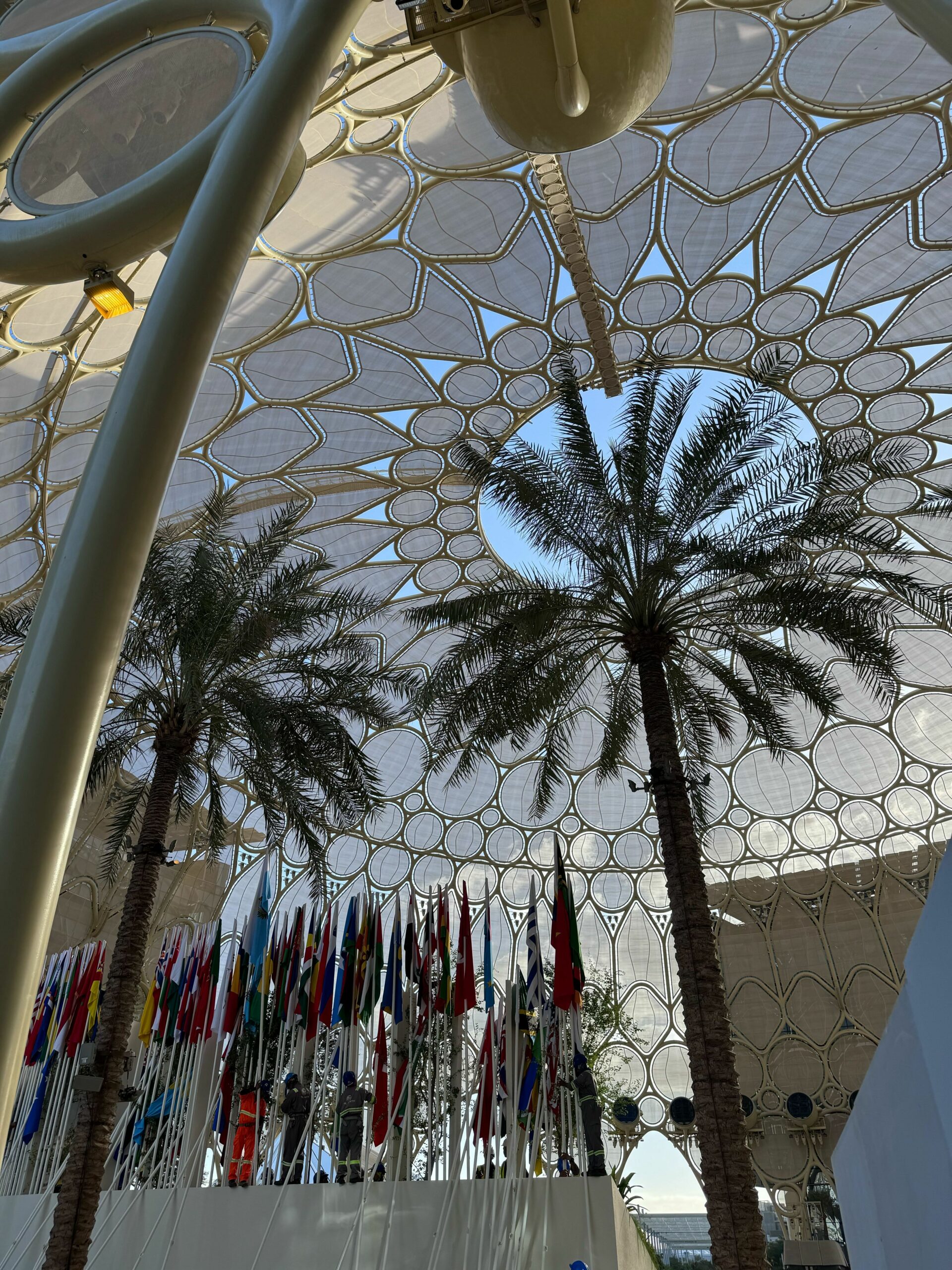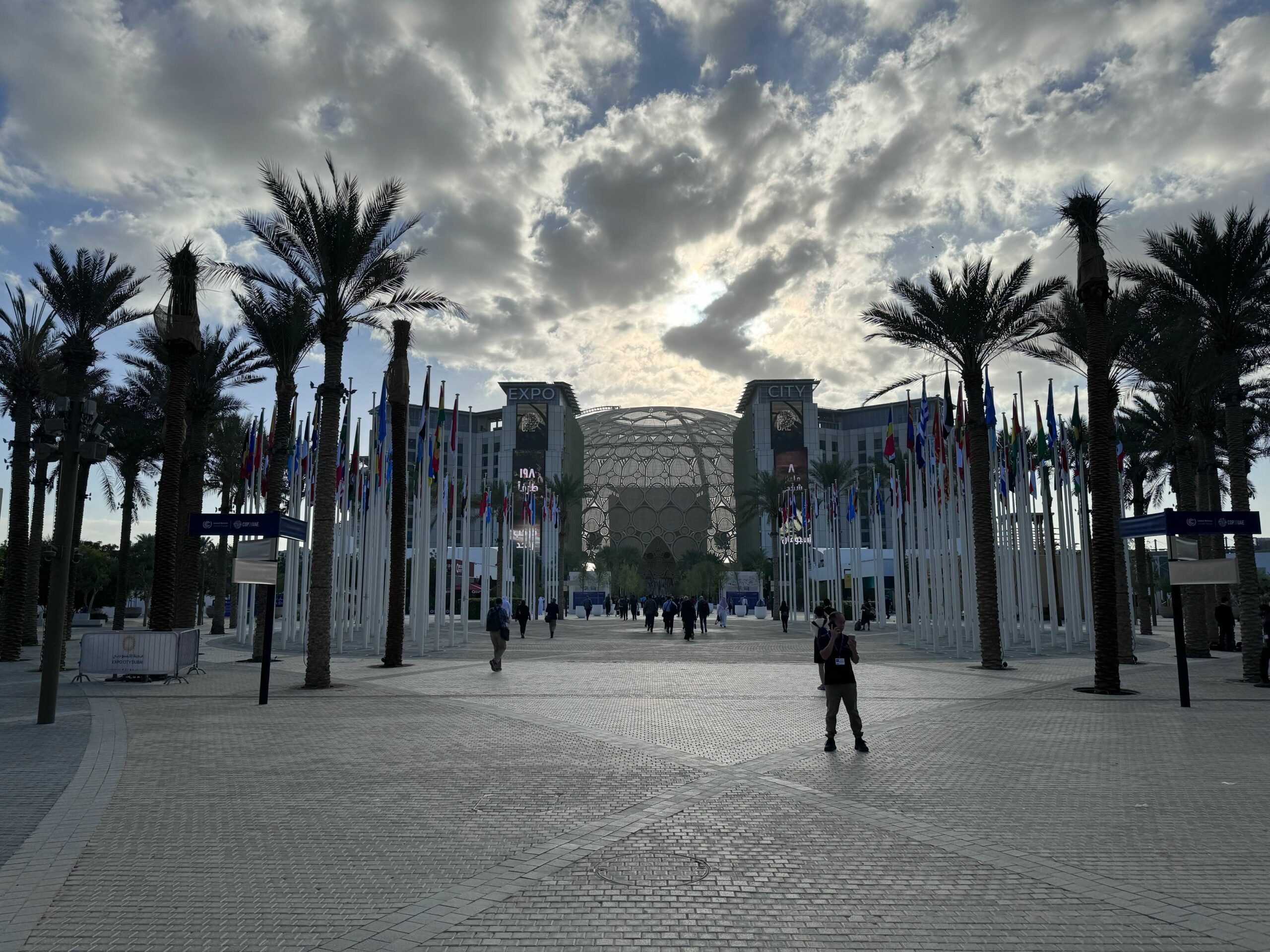
As world leaders and their negotiators head to the United Arab Emirates for this year’s climate negotiations, it is good to remind ourselves that the world only has six years left to achieve the Sustainable Development Goals (SDGs). Adopted by UN Member States back in 2015, the same year of the landmark Paris Climate Agreement, the SDGs set ambitious targets that would see humanity live in a more sustainable world.
Today the world faces multiple crises that have reversed gains made towards the achievement of the SDGs. The last few years have been particularly devastating to SDG2, the global goal to end hunger and all forms of malnutrition and ensure sustainable food production systems. Climate change, conflict and economic shocks were already affecting progress towards the goal before the COVID-19 pandemic, but the impact of the pandemic, the war in Ukraine and continued climate-related droughts and shocks have led to a dramatic rise in hunger. According to the 2023 SOFI report, 122 million more people are food insecure than in 2019.
However, as we have been reminded again and again, we achieve more and sustainable progress when we are united as a global community. World leaders meeting in Dubai must come together to address the climate crisis and acknowledge the food crisis that is both a consequence and a cause of climate change. For instance, of the 35 countries facing the greatest risk from climate change, 27 of them are already experiencing extreme food insecurity. Current agricultural practices and food systems alone make it impossible to limit warming to 1.5°C while a reversal of progress on hunger and malnutrition as a result of climate change puts millions of people at further risk.
Food systems – here defined as all the actors and processes involved in the growing, processing, transportation and consumption of food – have not received sufficient attention in climate negotiations despite their great potential to accelerate the climate action and development agendas. This COP promises to be different.
At the recent Global Food Security Summit, the UAE Minister of Climate Change and the Environment H.E. Mariam Almheiri positioned food systems transformation as critical to the climate agenda, saying: “Our goal is to highlight the severe pressure and risks that climate change puts on food, agricultural and water systems, which are pivotal to human well-being. At the dedicated day to food, agriculture, and water at COP28, we will reiterate both the challenge and the opportunity presented by food systems and their interactions with our precious planet.” But the real test will be if world leaders deliver at COP28.
So what can we expect when it comes to SDG2 and COP28?
Day 1 of COP28 will see the launch of the Emirates Declaration on Resilient Food Systems, Sustainable Agriculture and Climate Action, a high-level framework recognising the interplay between food and climate developed under the leadership of the COP28 Presidency. This is positive – but must be the first of many steps. For example, COP28 must agree and provide a framework to ensure that countries integrate food security and nutrition into the submitted Nationally Determined Contributions (NDCs) in COP30 as to ensure a food systems transformation that delivers healthy diets while protecting the planet.
The SDG2 Advocacy Hub has set out a 4 point plan of what we need to see at the climate summit:
- Operationalise the Loss and Damage Fund, integrate food security and nutrition, and ensure the timely and effective flow of funds. Developing countries have contributed the least to the climate crisis. Rural, frontline communities are being buffeted by the impacts of climate change. Stepping up support for loss and damage, especially for the most vulnerable communities, will prevent further backsliding and protect hardfought gains on hunger, malnutrition and extreme poverty.
- Prioritise adaptation and ensure that it receives 50% of climate financing as recommended by COP26 in Glasgow. Transformative adaptation would build resilience in vulnerable communities and accelerate progress towards the SDGs. COP28 must make meaningful progress on an ambitious global goal on adaptation with specific targets and indicators on sustainable agricultural practices, smallholder livelihoods, biodiversity, food security and nutrition, and financing commensurate with the latest estimates.
- Step up mitigation efforts to reduce greenhouse gas emissions from food systems and halt biodiversity loss. Sustainable, equitable food system transformation is essential to ensuring that SDG2 targets are achieved by 2030 and delivering good food for all without breaching the 1.5° threshold.
- Commit sufficient financing. We cannot afford further delays in delivering the financial commitment made in the Paris Agreement. Because of the failure to mitigate climate change and to deliver climate financing at scale, the latest estimates and costs are exponentially higher. COP28 must drive progress in aligning and leveraging various financing mechanisms to make available grant funding, rather than loans, for loss and damage, adaptation and mitigation as well as help solve the debt crisis as most low-income countries cannot fix the climate issue without fixing the debt issue.
For more, read the SDG2 Hub’s “A 4-Point Good Food For All Agenda at COP28” Policy Brief.

Urgent action is needed by everyone. Low income countries need far greater support (finance and technology) to develop in ways that align with a 1.5°C world, to manage and prevent loss and damage, to adapt to a warming world and mitigate the worst impacts of climate change. The cost of inaction is unthinkable: left unchecked, the climate crisis will further cripple already fragile food systems, as major crops yields decline by 40% due to drought and malnutrition becomes the leading cause of all climate-related child mortality by 2050.
The SDG2 Advocacy Hub team will be on the ground in Dubai to help ensure agriculture, nutrition and food security are part of COP28 discussions. Please feel free to reach out to SDG2 Hub’s Executive Director Paul Newnham (paul@sdg2advocacyhub.org) and find here a number of events and conversations that the SDG2 Hub will help to convene – join us! Additionally, follow Hungry for Action on Twitter/ X for timely updates.






